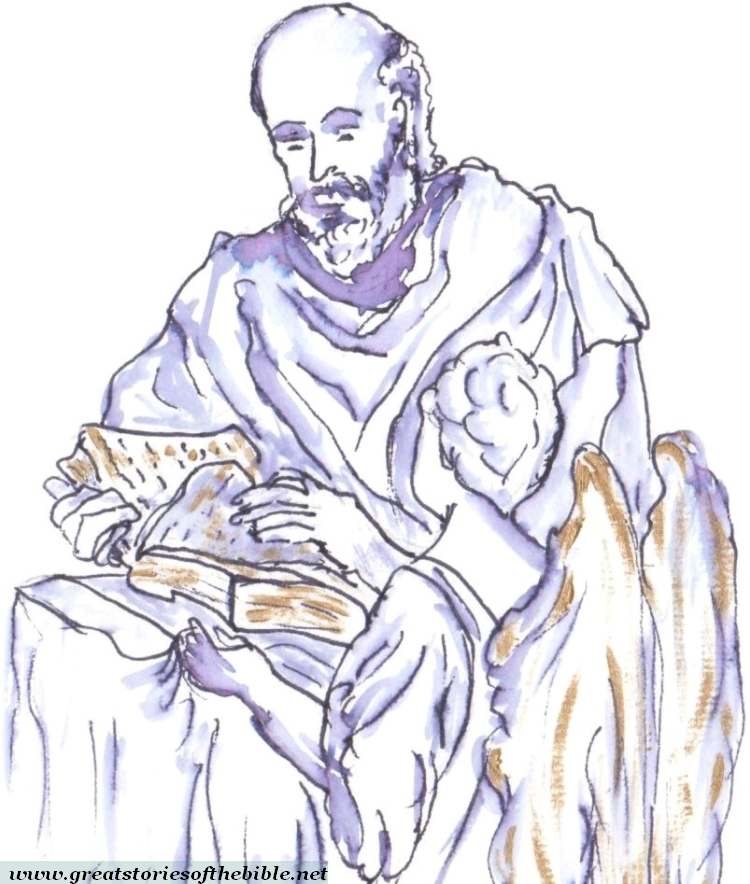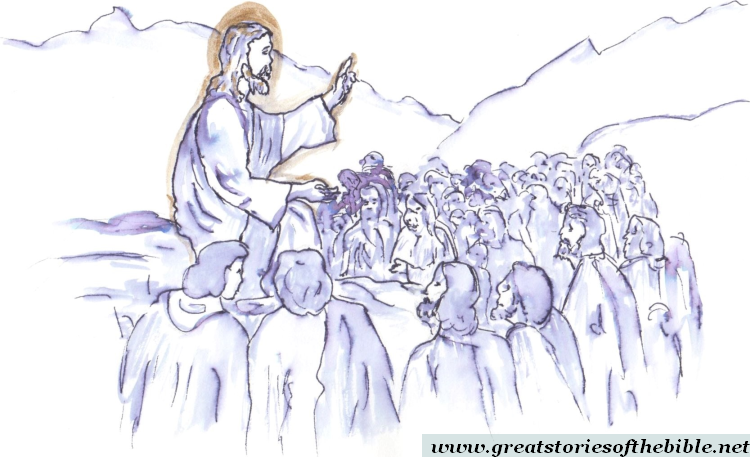Gospel of Matthew
Blessed are you!
The Tradition identifies the author of the gospel of Matthew with Matthew the apostle. He is a cultured Christian who knows very well the Old Testament (he often cites them to present Jesus as the fulfillment of the ancient prophecies) and Hebrew custom; moreover, he has a good mastery of the Greek language. His community is mainly composed of Christians coming from Judaism, probably living in a city (the Greek word for it, “pólis”, is very present in the text: maybe Antioch of Syria? See Matt 4,24), with a good number of wealthy persons (in comparison with the other two synoptic gospels Matthew often cites and knows a great variety of different coins; also see the “beatitude” of «the poor in spirit» in Matt 5,3: in Luke 6,20 they simply are «you who are poor»). The consolidated separation from the Hebrew religion (see e.g. Matt 4,23: Jesus is «teaching in their synagogues»; also see chapter 23 with His hard criticism of the Pharisees, mentioning the persecution against Jesus’ disciples at verse 34: «Therefore take notice, I send to you prophets, wise men, and scribes. Some of them you will kill and crucify; and some of them you will scourge in your synagogues, and persecute from city to city») and a well-defined communitarian and hierarchical structure (see e.g. chapter 18) suggest a date of composition around the 80s of the I century AD.
Matthew organized Jesus’ words in five big speeches (chapters 5-7; 10; 13; 18; 24-25; five like the books of the Hebrew Tȏrāh, the Pentateuch; also see the Book of Deuteronomy, structured around Moses’ last speeches) and seven narrative sections (chapters 1-2; 3-4; 8-9; 11-12; 14-17; 19-22; 26-28: seven is the number of fullness and perfection in the Hebrew culture). Evangelist Matthew’s symbol is the winged man (see Ezekiel - episode 1) because his gospel starts with Jesus’ human genealogy, from Abraham to Joseph and Mary His parents. 
Matthew and Luke are the only evangelists to write something about Jesus’ birth and about part of His childhood. In chapters 1-2 Matthew writes of Joseph’s doubts about Mary’s honesty (an angel reassures him); Jesus’ birth in Bethlehem and the coming of the «wise men from the east», following a star (they are the first of the Gentiles to whom the Resurrected sends His disciples at the end of the gospel; King Herod’s persecution; the flee in Egypt and the return to Israel after some time.
As a “tasting” of the gospel of Matthew I propose to you the well-known passage of the “Beatitudes”. We can find it in chapter 5, at the beginning of the Speech of the Mountain: by that setting the evangelist links Jesus to the God who gave the Law to Moses on Mount Sinai. Surrounded by the crowd, with His disciples near to Him, Jesus sits (as an authoritative teacher) and leads to fulfillment that same ancient Law. Every one of the eight “beatitudes” has three parts: the first is an exclamation of great and full joy («Blessed»); the second presents the recipients of the gift of this happiness (e.g.: «the poor in spirit»…); the third, the most important of them, tells the cause («for») which makes the first and the second part possible: it is God’s action that comes before, makes it possible and founds the human answer. The first and the last of the beatitudes both speak about the possession of «the Kingdom of Heaven», being like a frame to the group: the evangelist is telling us that all the other particular “beatitudes” belong to this fundamental one. 
Let us see in detail:
Blessed are the poor in spirit, for theirs is the Kingdom of Heaven.
I can receive all like a gift that does not belong to me, without being tied with greed to material wealth, to persons, to my life, because God gives Himself to me, wanting my true happiness: «If God is for us, who can be against us? He who did not spare his own Son, but delivered him up for us all, how would he not also with him freely give us all things?» (Rom 8,31-32).
Blessed are those who mourn [for somebody], for they shall be comforted.
I can accept to be hurt by the pain of my brother/sister who are in trouble, because God is the inexhaustible source of my (and his/her) consolation as Apostle Paul writes: «Blessed be the God and Father of our Lord Jesus Christ, the Father of mercies and God of all comfort; who comforts us in all our affliction, that we may be able to comfort those who are in any affliction, through the comfort with which we ourselves are comforted by God» (2Cor 1,3-4).
Blessed are the gentle, for they shall inherit the earth.
I can bear with great serenity any kind of conflict, without being violent with the persons who menace myself and my goods, because God, as a true Father, preserves my heavenly heritage for the eternal life and no one can snatch me out of His hand (see John 10,29).
Blessed are those who hunger and thirst after righteousness, for they shall be filled.
I can attend to the listening and the practice of Jesus’ message («righteousness») like for a primary necessity («hunger and thirst») from which my life depends, because God provides to all my needs with abundance: «Therefore I tell you, do not be anxious about your life, what you will eat or what you will drink; or about your body, what you will wear. […] For the Gentiles seek after all these things, for your heavenly Father knows that you need all these things. But seek first the Kingdom of God and his righteousness, and all these things will be given to you as well» (Matt 6,25.32-33).
Blessed are the merciful, for they shall obtain mercy.
I can forgive and be generous with my weak brother/sister, because God forgave and continually forgives me in Christ, and He is generous with me: «For rarely does one die for the righteous. Yet perhaps for a good person someone might dare to die. But God commends his own love toward us, in that while we were yet sinners, Christ died for us» (Rom 5,7-8).
Blessed are the pure in heart, for they shall see God.
I can seek the purity of my thoughts, my will, my affections (all these things are the «heart» in the Scriptures), without compensations that are alternative to God («evil thoughts, murders, adulteries, sexual sins, thefts, false testimony, and blasphemies»: to Matt 15,19 : they come out the heart defiling the person), because God shows Himself to me, introducing me in the intimacy of His Presence.
Blessed are the peacemakers, for they shall be called sons of God.
I can commit myself in making peace in every one of my relationships, and, after that, in bringing that peace to the others, because I am son of the God who «makes his sun to rise on the evil and the good, and sends rain on the just and the unjust. […] Therefore you shall be perfect, as your heavenly Father is perfect» (Matt 5,45.48).
Blessed are those who have been persecuted for righteousness’ sake, for theirs is the Kingdom of Heaven.
I can accept persecution, violence and shame for Jesus’ word («righteousness»), because in the Gospel I have God, a gift that is greater than every bad thing that could happen to me: «The Kingdom of Heaven is like a treasure hidden in the field, which a man found, and hid. In his joy, he goes and sells all that he has, and buys that field» (Matt 13,44).
In the next post we will examine the gospel of Mark.